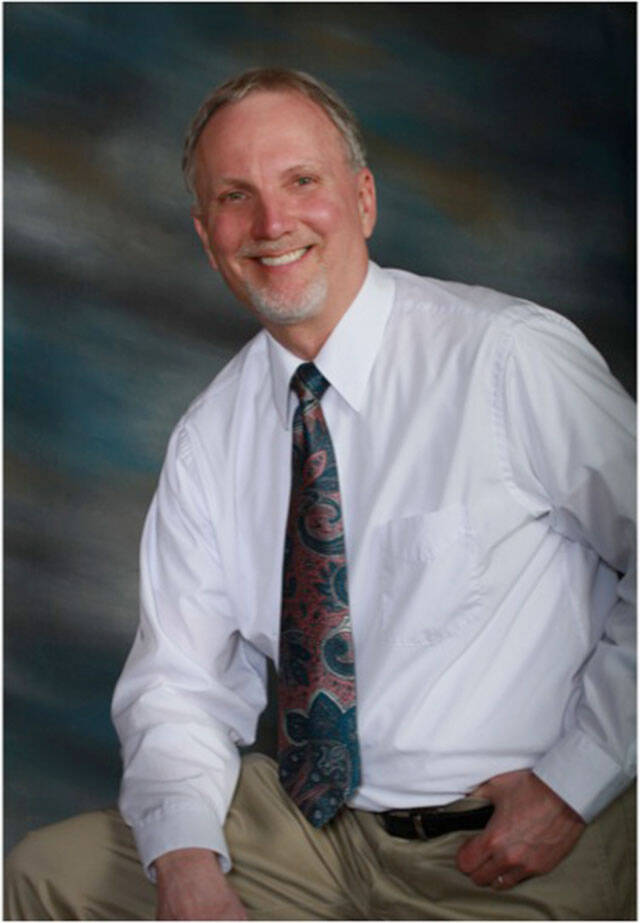Correction: In the print version of this article, Beau Biden was mistakenly named as the target of a Ukrainian investigation. Hunter Biden was the target of the investigation.
This week and last week marked the one-year anniversaries of two major events in the history of our nation: The Jan. 6th attempted coup by the former President of the United States and the beginning of the second impeachment proceedings.
Based upon a recent Washington Post and University of Maryland poll, 58 percent of Republicans believe Biden and the Democrats stole the election. When I ask Trump supporters what proof they have, they answer that there was a lot of fraud—ballot stuffing, immigrants and dead people voting, and the use of fraudulent mail-in ballots. They cannot substantiate these claims, but they just know because Trump said it and they don’t trust the left or the government.
I just finished reading Adam Schiff’s book, “Midnight in Washington: How We Almost Lost Our Democracy and Still Could.” Rep. Schiff of California was the chief House manager of Trump’s first impeachment trial, and he knows what happened. What he shared dovetailed largely with what I had heard and read in the news at the time. There were four revelations I gleaned from Schiff’s book that relate directly to the Jan. 6 attempted coup and explain some of Trump’s strange presidential behavior toward Russia.
Schiff gives the reader a detailed log of the preliminary steps of the trial by explaining Trump’s use of quid pro quo—his demand to Ukrainian President Zelensky in late 2019 to open an investigation of Hunter Biden and his connection with the Ukrainian energy company Burisma — before Ukraine could receive several hundred million dollars in already promised U.S. military aid to fight the Russians. Trump demanded the investigation to use against Biden during the 2020 election.
The first revelation is that Schiff actually convinced Senate Republicans during the impeachment trial that Trump had demanded a quid pro quo. The arguments were so forceful that several Senate Republicans came to Schiff privately, telling him they were convinced. But many Republicans rationalized that since the 2020 election was just nine months away, they would let the voters decide Trump’s fate.
Only Utah Republican Senator Mitt Romney voted to have Trump removed for abuse of power, but not for the quid pro quo. At least one Republican felt that Trump had learned his lesson, but based upon what happened on Jan. 6, Trump did not change. He only got worse.
The second of Schiff’s revelations explains why Trump’s base supported and still supports him, especially after the Jan. 6 insurrection: “The moment we start to believe that elections no longer work, that they no longer reflect the popular will, that they no longer deliver results or change, that they are no longer fair, that they are somehow rigged against us, and we are unwilling to accept any result other than total victory—that is the moment we start to believe democracy is not the answer and give ourselves up to the autocrat.”
Schiff’s third revelation is a truism: “America is a great country because America is a good country.” According to Schiff, we love that idea, because we believe our success lies with our own efforts rather than because of our abundant natural resources and two oceans that buffer us from invasion.
Yet Schiff also asserts that we Americans know in our innermost being that “if we allow ourselves to be led by a fundamentally indecent human being who knows nothing of and cares nothing for our values… who separates children from their parents and locks them in cages… who consorts with dictators, defiles our Constitution, and sunders our country,” then we cease to be a good people.
In his final revelation, Schiff explains why Trump always kowtowed to Putin. The answer is that during the 2016 presidential election, Trump was trying to get Putin’s approval to build a Trump Tower in Moscow, a fact which he hid from voters, because it was a powerful conflict of interest. Trump never gave up on his dream, and thus never challenged Putin. It all came down to money and self-interest.
By the time you read this column, the one-year anniversary of Jan. 6 will have been commemorated, and the Jan. 13 anniversary for second impeachment proceedings will be remembered. As Schiff notes throughout his book, the threat to our democracy did not end on Jan. 6. We are still in danger of another coup. Unfortunately, many Trump supporters do not understand that living in an autocracy would mean the end of many of the freedoms that they claim to want to protect.



